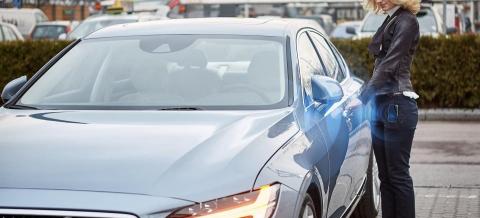The International Energy Agency (IEA) predicts that, if things continue on their current course (especially the invasion of Ukraine), we will face an “oil collapse”. To prevent this from happening, its experts propose a decalogue of measures, including Sundays without a car, slowing down and driving in shifts.
IEA experts say that the war in Ukraine and the sanctions against Russia have generated an oil shock that could degenerate into a “collapse due to lack of supply.”
To avoid reaching this point, the agency launches a proposal with 10 measures that they calculate could save up to 2.7 million barrels of oil in four months, the amount necessary to break dependence on Russian oil.
act on demand
While carriers and other sectors call for immediate measures to lower fuel prices, the International Energy Agency advocates “acting on demand” and “promoting a change in driver behavior.”
Energy experts think that the solution lies not so much in eliminating taxes that make fuels more expensive (in this link we calculate how much we would pay for gasoline if tax rates were eliminated) but in reducing the use of oil in transport.
Sundays without a car, slow down… the proposals of the International Energy Agency
From the IEA they explain that reducing the use of oil in transport will have an impact on prices (the lower the demand, the lower the price). That is why they encourage national and local governments to implement their proposed measures to prevent the oil collapse.
- Less speed. They consider that what “could potentially have the most effect would be to reduce the speed limit on motorways by 10 km/h.” And they remember that this is something that was done in the United States and in several European countries during the 1973 oil crisis and that it is currently practiced, above all for environmental reasons, congestion or road safety. “If it were generalized for vehicles and trucks, it would save about half a million barrels a day,” they say.
- More telecommuting. The other measure with the greatest potential impact would be to resort more to working from home, which would avoid millions of daily commutes: three days a week would be equivalent to another half a million barrels.
- Declaring Sundays car-free days in cities, which in turn encourages many people to decide to walk or cycle to get around the rest of the week, would also offer a very significant margin of savings (380,000 barrels).
-
Cheaper the use of public transport in parallel with the encouragement of those same practices of walking and cycling, which in addition have health benefits (330,000 barrels)
- Establish an alternative traffic system
- Prohibit air travel for those routes where there is another alternative.
- Promote much more the shared vehicle (now on average the occupancy rate is only 1.5 people per vehicle)
-
Driving more efficiently in energy terms without, for example, pushing the air conditioning so hard.
In addition to this, the energy agency proposes to reinforce the adoption of electric vehicles and promote efficient driving in cargo and freight trucks.










